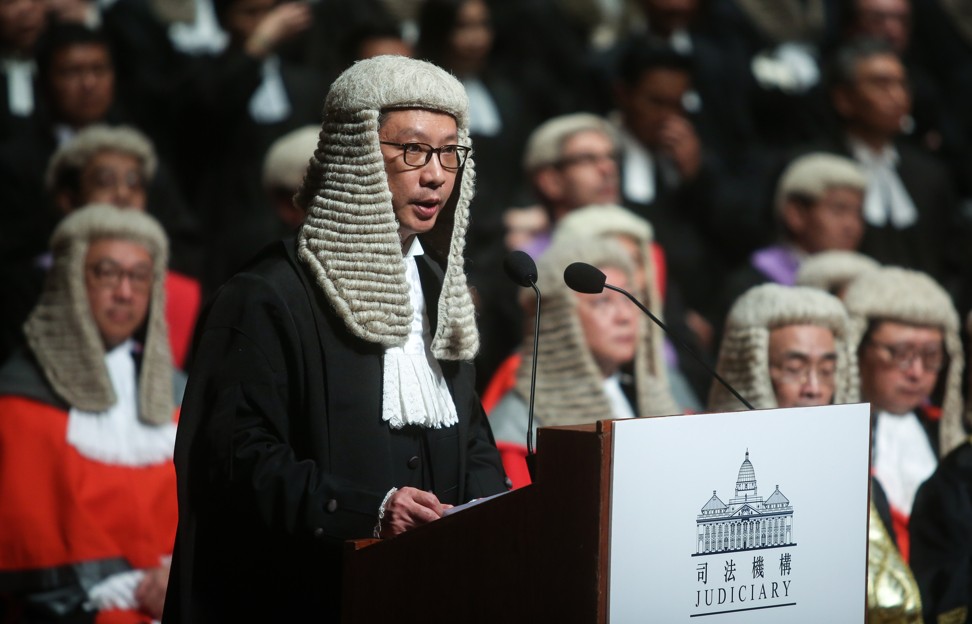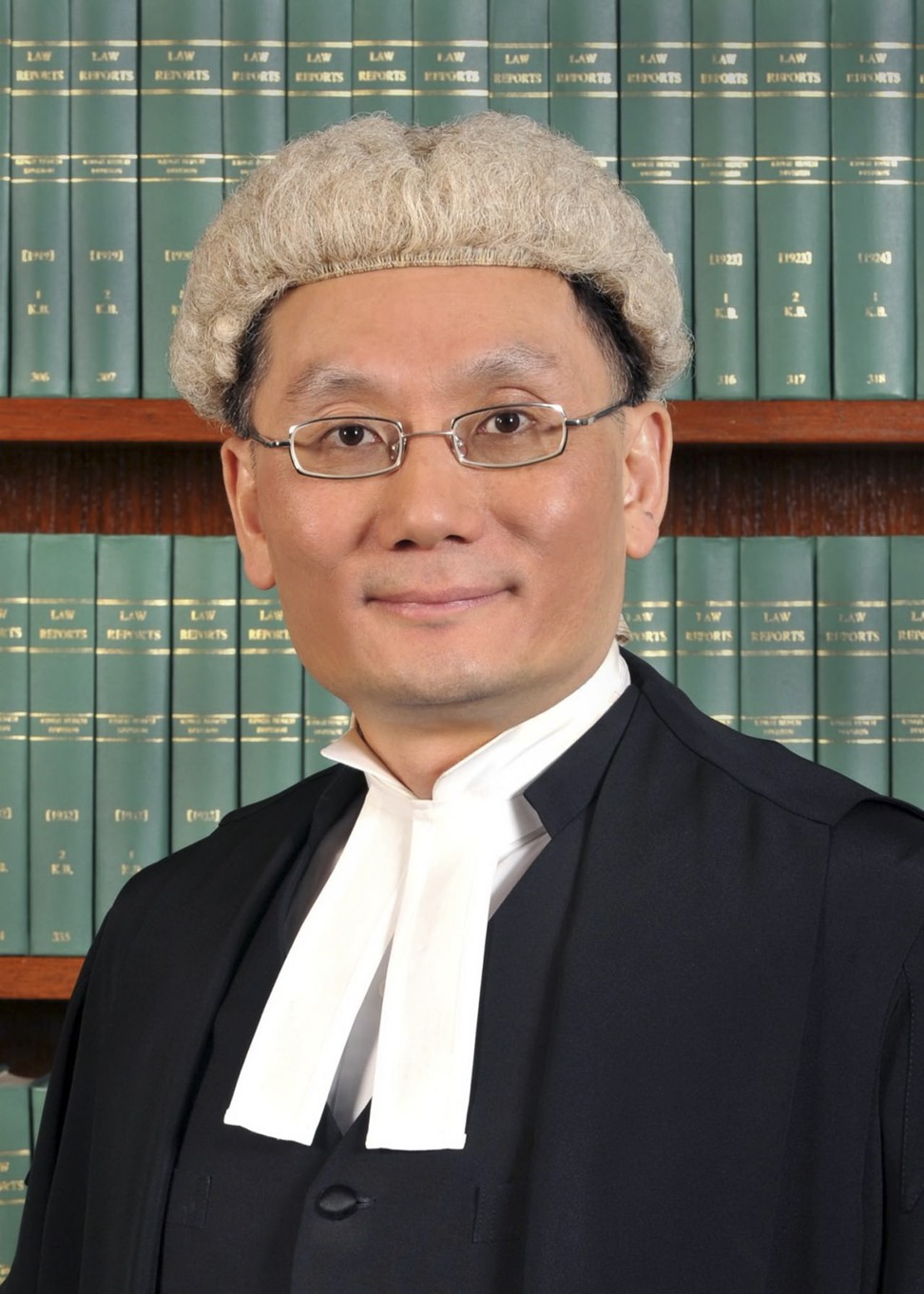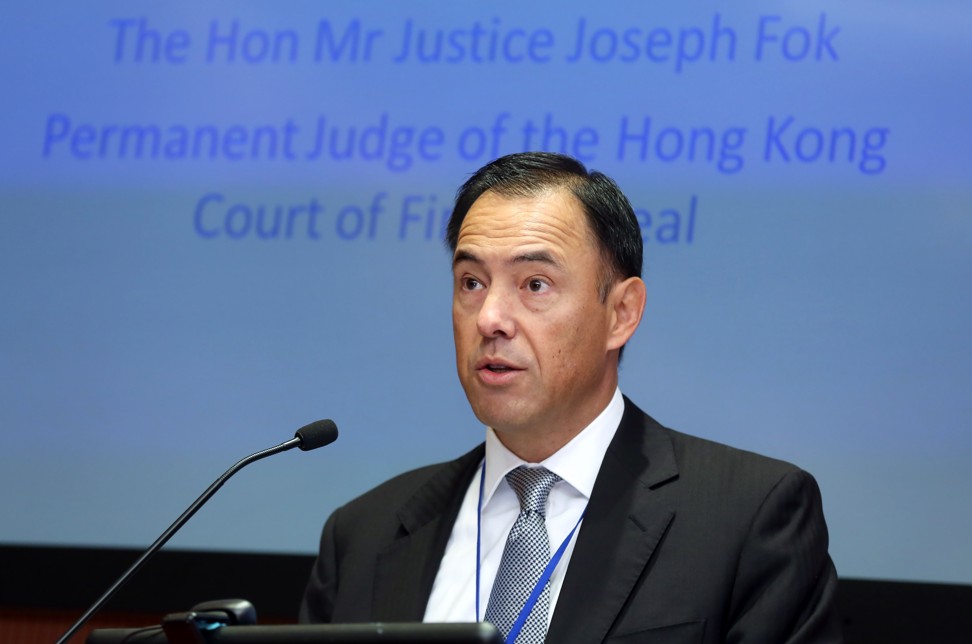
Hong Kong’s next chief justice: call to cast the net wider, consider top legal brains who are not sitting judges
- Search panel urged to keep an open mind, look at non-judges who can initiate change
- More names tossed up, though judge Andrew Cheung is considered front-runner
The panel looking for Hong Kong’s next chief justice is being urged to consider candidates other than serving judges to bring fresh insights to the judiciary.
“Veteran lawyers like Wong Yan-lung and Rimsky Yuen Kwok-keung, who have rich experience in the administration of justice and dealings with the judiciary, are also suitable candidates,” the source said.
Senior counsel Wong, 56, was secretary for justice from 2005 to 2012. Yuen, 55, is also a senior counsel and former Hong Kong Bar Association chairman, and was secretary for justice from 2012 to 2018.

Those in favour of extending the search beyond sitting judges point to Australia, where Tom Bathurst was a barrister before being made chief justice of New South Wales in 2011, and Singapore, which in 1990 appointed banker Yong Pung How, a lawyer by profession, its chief justice.
In Hong Kong itself, Andrew Li Kwok-nang was a senior counsel when he was named the first chief justice after the city was returned to China by Britain in 1997.
Hong Kong’s judiciary announced on October 31 that Ma would retire in January 2021, upon turning 65.
Students who want to be tomorrow’s leaders must learn respect, says top judge
Mr Justice Andrew Cheung Kui-nung, who was appointed a permanent judge of the Court of Final Appeal in October last year, is considered the front runner to take over, according to an insider.
The source said Ma preferred Cheung, 58, to succeed him, because of the latter’s administrative experience as chief judge of the High Court from 2011 to 2018.
To prepare Cheung for the top role, Ma had taken him on visits to mainland China in recent years, the source added.

Mr Justice Joseph Fok, 57, a permanent judge of the Court of Final Appeal since 2013, is also a potential contender, given his seniority.
But a person close to Fok said he could not read Chinese and his administrative experience did not compare with Cheung’s.
“Failure to read Chinese is a handicap for the top judge these days,” the source said.
The commission is chaired by Chief Justice Ma and has already started work to find his successor. The nine-member committee, which includes judges, academics, the secretary for justice, and Bar Association chief, makes recommendations on judicial appointments, among other matters.

Once it makes a recommendation for the next chief justice, the city’s leader will seek the Legislative Council’s endorsement and report the appointment to the National People’s Congress Standing Committee, mainland China’s top legislative body.
A spokesman for the judiciary said earlier it would take at least nine months to complete the constitutional procedures to appoint the next chief justice, and hoped the process could be completed by next summer.
Johannes Chan Man-mun, former dean of the University of Hong Kong’s faculty of law, agreed that the commission’s approach should be to find the best person for the job.
“There is no reason the search should be confined to candidates within the judiciary,” he said. “Existing members of the judiciary would have a good understanding of how the judiciary works and what its challenges are. Candidates from outside would be able to bring fresh insights and ideas to further strengthen the judiciary.”
He said it was not uncommon in other jurisdictions to have chief justices appointed from outside the judiciary, and there were highly qualified candidates among lawyers in private practice.
“This does not mean that we should not consider existing judges,” Chan said. “The most important criteria should be the quality and competence of the candidate, their judicial as well as administrative experience, and vision.”
The senior figure who suggested the commission look beyond the judiciary said some veteran judges might not initiate reforms after serving in the institution for a long time.
Singapore’s Yong Pung How, who switched from banking to be chief justice from 1990 to 2006, is credited with making the city state’s justice system more efficient, by introducing technology into courtrooms and speeding up the process for setting hearing dates and concluding cases.
Judge warned after name appears on petition against extradition bill
Erik Shum Sze-man, a member of the Bar Council, the Bar Association’s governing body, said he expected the commission not to restrict itself to sitting members of the judiciary, but adopt a more open-minded approach before recommending the best candidate.
Speaking in a personal capacity, he said the chief justice must carry out the functions and duties of a judge hearing cases in the Court of Final Appeal, and also do administrative work.
“When it comes to judicial duties which could be seen as the primary and most important function of the chief justice, a current judge obviously meets an important criterion,” Shum said.
“Generally, given the duties and functions of the chief justice, he or she needs to be a well-rounded person, and exposure to areas other than the law would surely be an advantage.”

